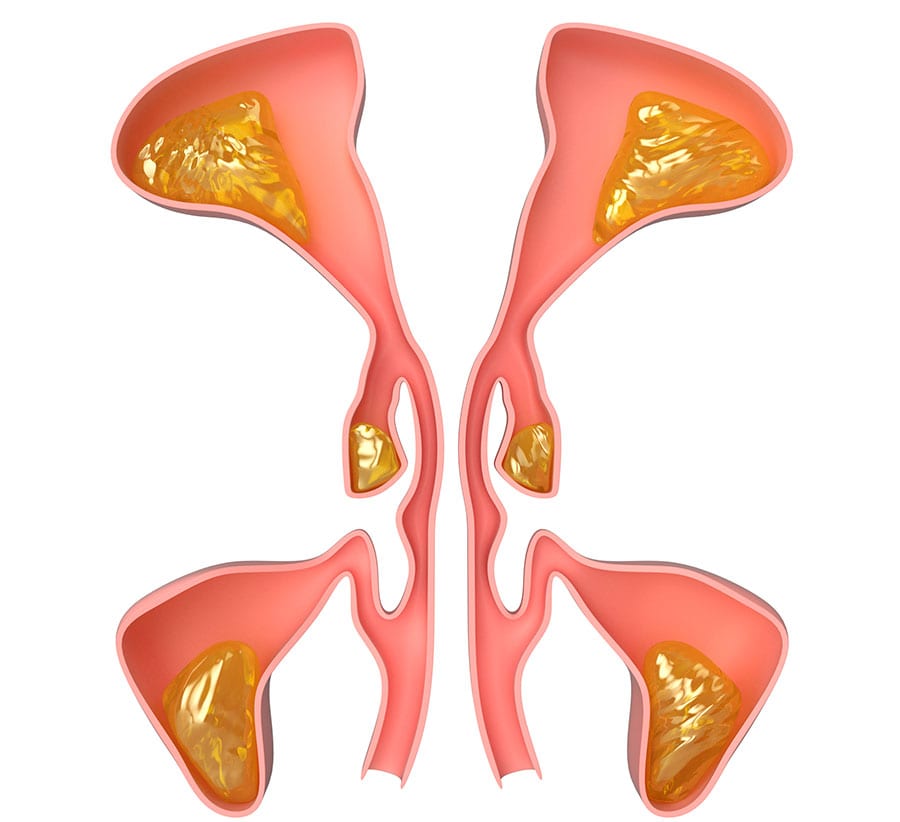
Everybody has air-filled cavities called sinuses that help lighten the face and moisturize the air that comes in through the nose. If one or more of these cavities is blocked, initial treatment usually involves nasal rinses, sinus medication, and similar efforts. But if conservative treatments aren’t effective or if the obstruction is severe, you may benefit from a visit to a sinus surgery specialist.
What a Sinus Surgery Specialist Does
A spine surgeon typically performs an examination of your nose and sinus cavities. This process usually involves endoscopic sinus observation done with a special lighted scope with an attached camera that’s inserted through your nostrils. Before any specific treatment is recommended, a sinus surgery specialist is also likely to take the following steps:
- Asking about your symptoms
- Reviewing your medical history
- Determining the source of your sinus blockage
- Ruling out nose-related problems, such as a deviated septum


When Sinus Surgery Is Recommended
Simply seeing a sinus surgery specialist doesn’t mean surgery will be your only option. If you have swollen nasal or sinus passages due to chronic infections (sinusitis), for example, surgery is only likely to be recommended if your symptoms cannot be effectively managed with medication. This is also likely to be true if recurrent sinus infections, facial pain, headaches, and other disruptive symptoms commonly associated with nasal polyps aren’t effectively manageable with non-surgical treatments.
Surgery may become an option as well if you have a benign or cancerous nasal growth that’s significantly blocking one or more of your sinus cavities. Surgery may also be suggested if a sinus blockage is contributing to obstructive sleep apnea (OSA) problems or respiratory issues.
Surgery Options
Functional endoscopic sinus surgery (FESS) is one of the most common sinus surgery options today. It’s a minimally invasive approach to sinus surgery that’s done with a fiber-optic tube inserted through the nostrils. Image-guided endoscopic surgery is a similar technique that involves infrared signals and CT scans.
If there is a need to remove growths or improve drainage, a sinus surgeon may use what’s referred to as a Caldwell-Luc operation. It’s done by creating a pathway from the nose to a sinus cavity below the eye. This type of sinus surgery is performed from an access point inside the mouth via an incision in the upper jaw.
Recovery After Surgery
Following any type of sinus surgery, you may experience temporary swelling or discomfort. You may be given medication to help minimize these post-surgery issues. Some patients also need to take a nasal decongestant to help keep nasal and sinus passages clear as tissues heal.
Many patients benefit from the treatments recommended by a sinus surgery specialist since decisions are typically based on a thorough evaluation and a solid understanding of what’s blocking a sinus cavity or sinus drainage pathway. You may also be given post-surgery advice on how to reduce your risk of experiencing severe sinus issues in the future. For instance, if you have nasal allergies that affect your sinuses, you may be advised to consider immunotherapy, or at least know your triggers so you can avoid them as much as possible.
